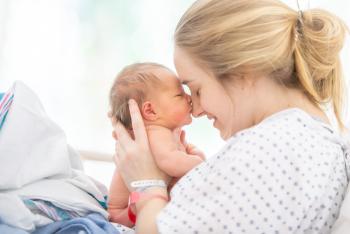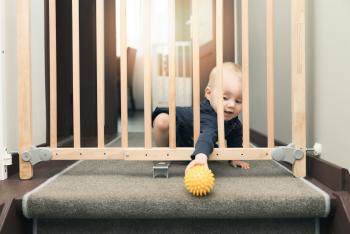This article provides a guide for caregivers on how to keep their children healthy during the school...
Read More
Ensure your baby's safety and wellbeing with simple steps from Inspira Health. Learn how to reduce the risk of SIDS and infant drops, while keeping your baby protected and healthy. Reach out to your provider for any questions or concerns during this precious time.
Speaker 1: From all of us here at Inspira Health, congratulations on the new addition to your family. We understand that having a newborn can be overwhelming and stressful. The good news is there are simple steps you can take to ensure your baby's safety and wellbeing.
SIDS, or a sudden infant death syndrome is the unexplained death of a baby, younger than one year old and usually happens while the baby is sleeping. That's a scary thought for any parent. Some risk factors can't be controlled, and these are important to know. SIDs is more common in boys, premature babies and infants between two to four months old. Babies who have a family history of SIDs and babies exposed to secondhand smoke are also at a higher risk. And for reasons we're still working to understand, Black infants are twice as likely than white infants to die of SIDS.
Thankfully, you can take steps to help reduce the likelihood of SSIDs and ensure your baby's protection and health. One of the best things you can do is avoid sleeping with your baby in your bed or on the couch. Always place your baby on their back on a firm flat mattress in their own crib or bassinet, free of any bumpers, blankets, or toys, keeping your home and car smoke-free. Maintaining a cool, comfortable room temperature and breastfeeding can also help keep your baby safe.
It's something no parent wants to think about, but infant drops and falls are more common than you think. Parenting, especially in the newborn stage, can be exhausting. It's okay to ask someone for help when you're feeling drowsy or weak. Be mindful about feeling sleepy after breastfeeding, taking pain medication, or being in late night, early morning hours, especially if you had a C-section. It's always a good idea to have someone else in the room with you while breastfeeding. If your baby ever falls or is dropped during your hospital stay, notify your nurse right away so the baby can be evaluated by a doctor. If a fall happens at home, call your pediatrician immediately.
It's important to stay informed and take proactive steps to keep your little one safe. But don't forget to also enjoy this precious time. Please don't hesitate to reach out to your provider if you have any questions.

This article provides a guide for caregivers on how to keep their children healthy during the school...
Read More
Discover the benefits of gentle C-sections, a compassionate approach to cesarean births that...
Read More
Best practices for baby safety are constantly changing, and keeping your baby out of harm’s way...
Read More
The material set forth in this site in no way seeks to diagnose or treat illness or to serve as a substitute for professional medical care. Please speak with your health care provider if you have a health concern or if you are considering adopting any exercise program or dietary guidelines. For permission to reprint any portion of this website or to be removed from a notification list, please contact us at (856) 537-6772